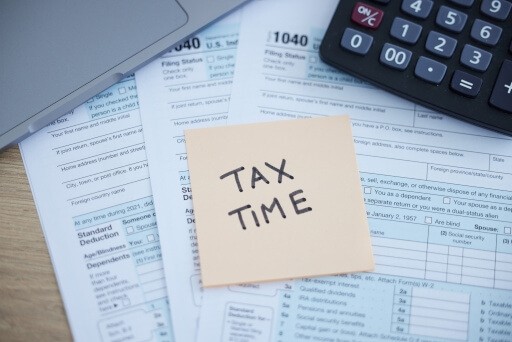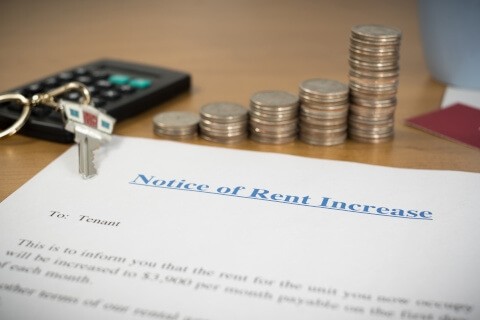Managing a rental property can be challenging, but hiring a property manager can help ease your workload and maximize returns. When it comes to owning rental properties, you're not just a homeowner but a business owner. It's a role that can be both rewarding and challenging, leading you to question whether you should hire a property manager. Before making that decision, it's important to consider the cost and benefits of property management services. Property management fees can vary greatly, typically ranging from 8 to 12 percent of the property's monthly rental value, in addition to additional fees. By understanding these numbers, you can determine if investing in an experienced property manager is the right move to make your property investment thrive.
The fees for property management companies vary, but they’re usually calculated as a portion of the property’s monthly rent. Typically, this is anywhere between 8 and 12 percent of the rental income. Other fees may also apply. Read more below.
In this article:
- What’s the Role and Responsibility of Property Managers?
- What Can You Expect to Pay for a Property Manager?
- 9 Common Property Management Fees
- Additional Factors That Play a Role in Property Management Costs
- Final Considerations for Hiring Property Managers
- Track Expenses with Apartments.com
What’s the Role and Responsibility of Property Managers?
A property manager is primarily tasked with supervising the daily functions of a rental property for the owner. Typically, property managers fulfill two key roles, which include:
Tenant placement
This involves securing tenants for the rental property. Property managers or management companies handle tasks such as:
- Marketing and advertising the property to attract potential tenants
- Screening tenants, including conducting background checks and credit checks
- Drafting lease agreements and collecting security deposits
Property management
This focuses on maintaining the rental property to ensure it remains in good condition for tenants. Property managers or management companies are responsible for tasks such as:
- Collecting rent payments and enforcing late fee policies
- Handling maintenance requests and coordinating repairs
- Conducting regular property inspections
- Dealing with tenant complaints or issues
In summary, a property manager's responsibility is to handle the day-to-day operations of your rental property, from finding and securing tenants to maintaining the property in good condition. By hiring a property manager, you can save time and effort while ensuring your investment remains profitable.
What Can You Expect to Pay for a Property Manager?
As mentioned earlier, property management fees can range from 8 to 12 percent of the monthly rental income. However, this fee is not set in stone and can vary depending on the location, services provided, and the type of property being managed. For example, if you own a single-family home or a multi-unit apartment building, the management fees may differ.
The best way to determine what you can expect to pay for a property manager is to research and compare different companies in your area. As a property owner, you may want to be completely hands-off, while other property owners may prefer to delegate tasks, such as advertising and tenant screening, to property managers. To determine what your property manager is capable of and what you would like to do as a property owner, you need to have specific questions ready to ask them. Below is a breakdown of the common fees property managers and/or property management companies charge.
9 Common Property Management Fees
1. Monthly property manager fees
Property management companies typically charge a monthly management fee, along with other associated fees. The monthly management fee can either be a fixed flat rate or a percentage (usually between (8 to 12 percent) of the monthly gross rent. For instance, if the monthly rent is $1,300 and the management fee is 10 percent, you would pay $130. Alternatively, some companies offer fixed management fees based on factors such as square footage and property type. This management fee covers various daily tasks, including tenant communication, rent collection, and handling repairs and emergency maintenance. Some companies provide all-inclusive packages, while others offer individual services on request. If you opt for a company with a la carte services, they may offer a lower monthly fee that includes basic services like rent collection and maintenance. It's important to understand the services covered by your chosen management fee to accurately assess your monthly bill.
2. Setup fee
This fee is also known as a sign-up fee or onboarding fee and is usually a one-time payment between $250-$500 per unit that you will need to pay when you first hire a property management company. Some companies will charge the equivalent of one month’s rent. The sign-up fee can cover the following:
- Cost of setting up your account for bookkeeping
- Opening a bank account in your name, if needed
- Initial inspection to evaluate the condition of the property
- Assistance with applying for required tax or business licenses
3. Tenant placement fee
Property managers charge a tenant placement fee, also known as a leasing or vacant unit fee, when they secure a new tenant for a lease. This fee can range from 25 to 75 percent of the first month's rent or be a flat fee. It covers various costs such as advertising, screening, touring the unit, creating leases, and move-in inspections. In some cases, this fee may be used to pay a real estate agent commission for tenant recruitment. Some property managers offer a full or prorated refund if a tenant breaks their lease or gets evicted. When a rental property is vacant, managers may charge a fixed fee or an amount equivalent to one month's rent until a new tenant signs the lease. Vacant rentals pose higher risks and require increased effort from managers, who conduct regular inspections to prevent break-ins and squatters.
4. Lease renewal fee
Renewing a lease with an existing tenant triggers this fee and covers the time the manager takes to make lease changes. Examples include a rent increase, concessions, or obtaining the tenant’s signature. Some property managers will not charge this fee at all. If they charge a lease renewal fee, expect to pay a percentage of rent or a flat rate. Either way, this fee is usually $200 or less.
5. Maintenance fees
Property maintenance issues are common, and some property management companies will have a full-time maintenance crew, while others will have a trustworthy network of professional contractors. Property managers will negotiate prices or receive discounts because they provide the contractors with continued business, so maintenance costs should be lower than what you could find on your own.
Property owners should budget at least 1-1.5 times the monthly rental rate for maintenance fees. For example, if the price of rent is $1,000 per month, be prepared to spend at least $1,500 throughout a one-year lease. You should plan to put at least 10 percent of rent each month into a maintenance fund, so there is money available when tenants submit requests.
Property managers should not be profiting from maintenance performed on the property unless they supervise a significant renovation to ensure correct work. If the manager oversees renovations, some companies will charge a project management fee of 10 percent of the project value. Beware of managers who charge mark-up fees over 20 percent. You should only pay for replacing or repairing damaged items and the costs of turning the property to a new tenant.
Regardless of how much maintenance costs are, expect to receive pictures of the damage, an itemized estimate for repair costs, and an itemized receipt once the repairs are finished.
6. Eviction and collection fees
Property management companies will charge an additional fee for handling evictions and collection services to obtain past-due rent. The property management company might have the expertise to handle the eviction in-house, or the company will contact a law firm for assistance. This fee is usually $200 to $500 per eviction, plus any additional legal fees.
7. Late payment fees
Although charging late fees for past due rent is a standard industry practice, the money collected doesn’t always equate to extra income. Some property managers will keep 20 to 50 percent of collected late fees as compensation for gathering unpaid rent.
8. Contract termination fee
Similar to a tenant breaking a lease, there might be consequences for ending a contract with a property management company early. Unless you have a just cause for breaking the contract, such as the property manager not performing the duties listed in the agreement, you could be charged an early termination fee. The cost of these fees varies. Some firms will only request one month of lost income, while others will go as far as suing the property owner for breach of contract.
9. Routine inspection fee
A rental property should be inspected every three to six months to detect minor maintenance issues or damage before they snowball into larger, more expensive problems. Some property managers will charge for every inspection and charge a lower monthly management fee. Instead of charging for every inspection, some managers will do a free semi-annual inspection. Whether they charge you or not, the property manager should provide a detailed inspection report with photos and videos so you can know about the property’s condition.
Additional Factors That Play a Role in Property Management Costs
Property management fees are based on the manager’s services to maintain a profitable rental property. Not every property is the same; some will require more work than others. Several factors play a role in the fees charged by property management firms.
Quantity/type/size of property
Managing a multi-family building is usually more complex than operating a single-family rental home because there are more units and tenants. The square footage, number of bedrooms, and number of units can all influence the cost of property management fees. Short-term rental properties also impact fees. With a long-term rental property, you might have to pay a one-time fee, which would be a percentage of the monthly rent, but a property management firm could request a smaller commission for a short-term tenant.
Condition
Older rental properties usually require more repairs and maintenance than newer ones, even if renovated. Therefore, you might pay more fees if you own an older property.
Market competition
In smaller markets, you might pay more in fees for your rental property. A smaller market means there is less competition among property management companies. However, this usually makes the demand for property managers higher, and since there aren’t many companies in the market, you could end up paying more fees.
Final Considerations for Hiring Property Managers
After knowing some standard property management fees and how much property managers usually charge, there are a few more things to consider before sealing the deal.
The lowest cost isn’t always the best
A cheaper monthly management fee, fixed fees, or a la carte services might seem like a good deal initially, but they can cost more in the long run. Remember, your rental property is an investment, so you will need to invest in a great property manager to succeed. Focus on the quality of the service because a bad property manager will be more expensive over time if they aren’t fulfilling their duties.
The best property managers will have the necessary skills to increase your rental value, price appreciation, and return on investment. They will also help retain long-term tenants, reduce the vacancy rate, and save you valuable time. Check out our guide on hiring a rental property manager so you can find the most qualified person for the job.
Comparing fees between property management companies
If you decide to hire a property manager, it’s essential to look at different property management companies and perform a comprehensive comparison of their fees to ensure you're getting the best value for your investment. Start by gathering detailed quotes from multiple companies and making sure each quote is provided in writing. This step guarantees clarity and prevents any hidden surprises down the line.
You should also ask for a breakdown of all potential fees, not just the monthly management fee. This includes setup fees, tenant placement fees, maintenance fees, and any other charges that might apply to your property. It's also wise to inquire about the conditions under which these fees would increase, such as for emergency maintenance or legal fees associated with eviction processes.
Remember, as stated earlier, the cheapest option isn’t always the best when it comes to property management. Look beyond the numbers and consider the quality of services, the company's reputation, and its track record of success. By doing so, you can make an informed decision that balances cost-effectiveness with the assurance of a professional, reliable service for your rental property.
Read the contract
When reading the contract, determine the type of payment the property manager is requesting. Look to see if you will be paying monthly fees upon rent collected, not “out of rental value,” “scheduled rent,” or “rent due.” Paying upon rent collected means the property manager will only receive their percentage when rent is collected and ensures you only have to pay when you have rental income. Essentially, you both get paid at the same time. Ensure you understand all the recurring and one-time fees listed in the contract. Reach out to an attorney if you need help deciphering the contract.
Negotiate
Although the fee cost may not be negotiable, you could save money if there’s a service you don’t need and possibly remove it from the agreement. This is helpful for property owners who only want to hire property managers for advertising or tenant screening services.
Talk with your property manager about setting a monetary limit on how much they can charge you for routine maintenance. For instance, some property owners need managers to notify them of repairs exceeding $100 (or another amount), and repairs can’t begin until the owner approves.
You can also negotiate maintenance services included in your monthly property management fee, plus charges for materials and labor.
Track Expenses with Apartments.com
Being a landlord means dealing with bookkeeping. Whether it’s receipts for repairs, documenting income, or hiring a property manager, keeping everything organized for tax season can be a headache. Luckily, Apartments.com has a great solution. Our expense tracking platform helps you summarize rental expenses by property and tax category. From there, you can easily export them to CSV or PDF formats to make doing your taxes a breeze. Unlike our competitors, there’s no need to go off-site to a third party for required forms. With Apartments.com, you can download the required tax filing forms directly from your account, and they are backed up for seven years. Keep all your expenses in one place and make the best financial decisions for you and your business.
Hiring a property manager can be an advantageous decision for your rental property business. It may initially seem daunting, but the value they bring is worth considering beyond just the cost. A good property manager can alleviate stress, freeing up your time to focus on growing your portfolio or enjoying the benefits of your investment. They act as a trusted advisor, able to navigate the complexities of property management on your behalf. Remember, each property and owner's requirements are unique. Dedicate time to research, analyze the numbers, and ensure you make the right choice for your business and peace of mind. Ultimately, the goal is to simplify your life and increase the profitability of your rental property investment.











